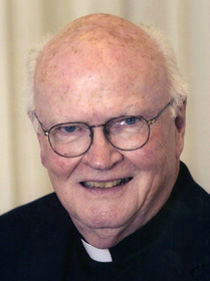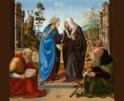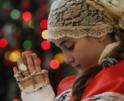
Culture
'Human rights are being violated on every continent. More people are oppressed than free. How can one not be sensitive to their plight?'

SJ
Elie Wiesel, Holocaust survivor and eloquent witness who kept alive the memory of the extermination of 6 million Jews by the Nazis during World War II, died on July 2 at age 87. His mission in life was to preserve the memory of the Holocaust and to speak out against forgetfulness and violence.
In accepting the Nobel Peace Prize in 1986, Wiesel said, "Human rights are being violated on every continent. More people are oppressed than free. How can one not be sensitive to their plight? Human suffering anywhere concerns men and women everywhere. ... Violence is not the answer. Terrorism is the most dangerous of answers."
He denounced silence as complicity and forgetfulness as betrayal. And speaking to all the living he said, "Our lives no longer belong to us alone; they belong to all those who need us desperately."
Who needs us the most? That's a fair question; it needs to be asked by all who fear being complicit by being silent and want to avoid forgetfulness of past evil in order to fend off future evil.
Another way of asking that question is: Where is protection needed most?
Human life, both born and unborn, is surely in need of protection. We need protection from disease. Our physical environment needs protection. Our property needs protection and so does our country. Our minds need protection from both ignorance and falsehood.
And, if truth be told, we have to admit the need for protection from ourselves -- our inner demons, selfish ambitions and desire to dominate and accumulate.
Where is help needed the most? Here you have to look at those who cannot help themselves. This means the poor, the elderly, the weak, those who are in any way vulnerable; and here again, this search has to begin with the unborn, by definition totally helpless.
Silence is not helpful to the unborn; neither is forgetfulness. But if you are going to speak out, where do you say what must be said? And if you want not to forget, who is it that you want to remember?
For openers, try to remember yourself. You began, as they say, as a gleam in your father's eye. You then became an embryo, a being on its way to becoming a fully grown human person.
Think now of all those embryos waiting to be born, especially those who might not make it because of a mother's decision to have an abortion. Since Roe v. Wade in 1973, the law gives her that legal right.
How would you speak out? Begin first by thinking of how to speak to and support a woman in a crisis pregnancy, and then later work at a broader level to change the law.
And where do you say what must be said? Say it first in your families, then in schools and anywhere people gather to think, pray and decide what's best for the human community.
Try to become comfortable in speaking up and in refusing to forget. Remember what Elie Wiesel said: "Our lives no longer belong to us alone; they belong to all those who need us desperately."
Quiet reflection on the desperate needs of our time will bring you into contact with human persons -- born and unborn -- frightened, hungry, poor, uneducated or insecure. If they can't count on you, where can they turn?
- Father Byron is a columnist with the Catholic News Service.
Recent articles in the Culture & Events section
-
Tolkien's world, still popular on the big screen, began with faith and wordsCecilia Hadley
-
Scripture Reflection for Dec. 22, 2024, Fourth Sunday of AdventDeacon Greg Kandra
-
Getting adult children to Christmas MassGreg Erlandson
-
The work of redemptionEileen McLaughlin
-
Intern reflectionsEmily Greco and James Kaeser


















